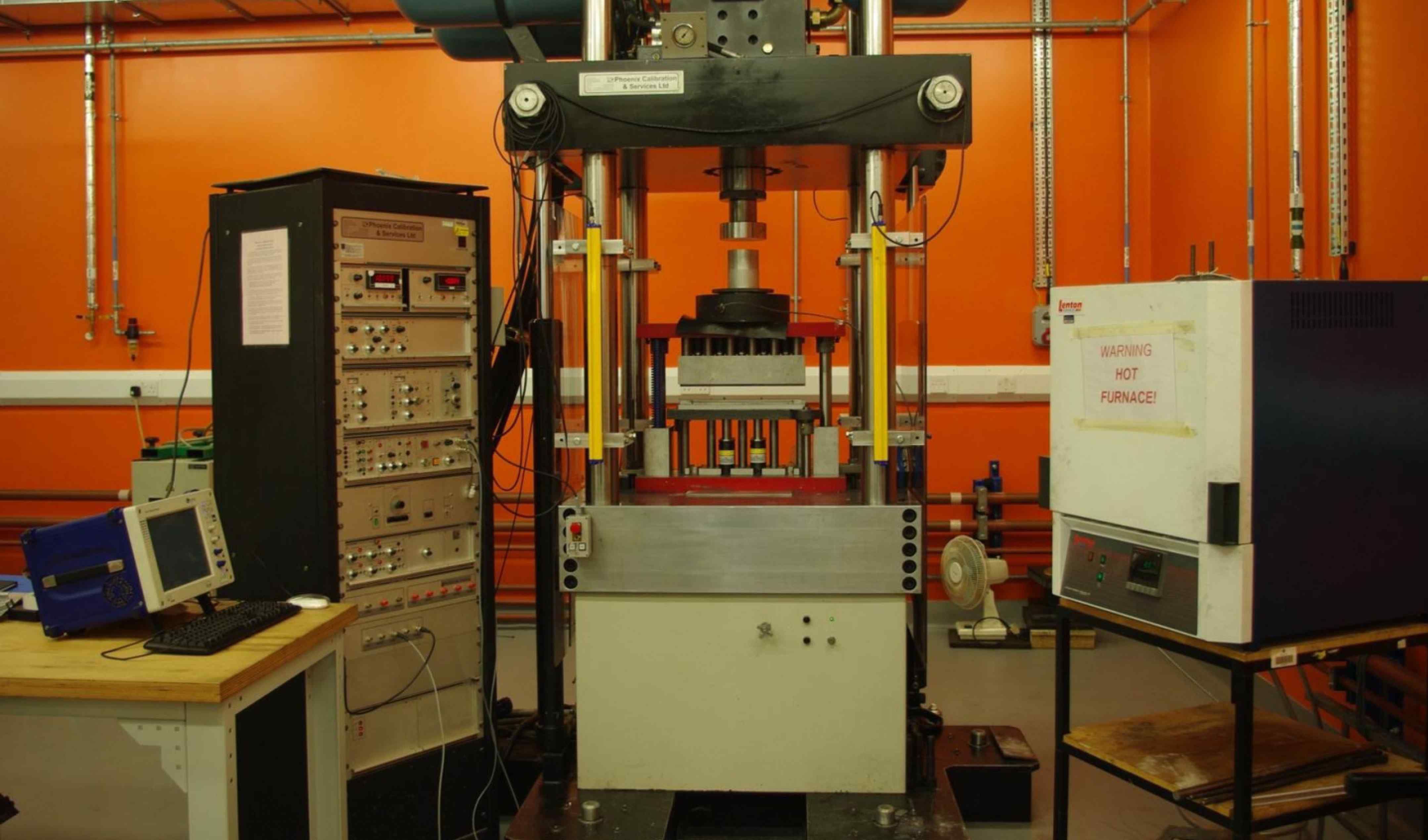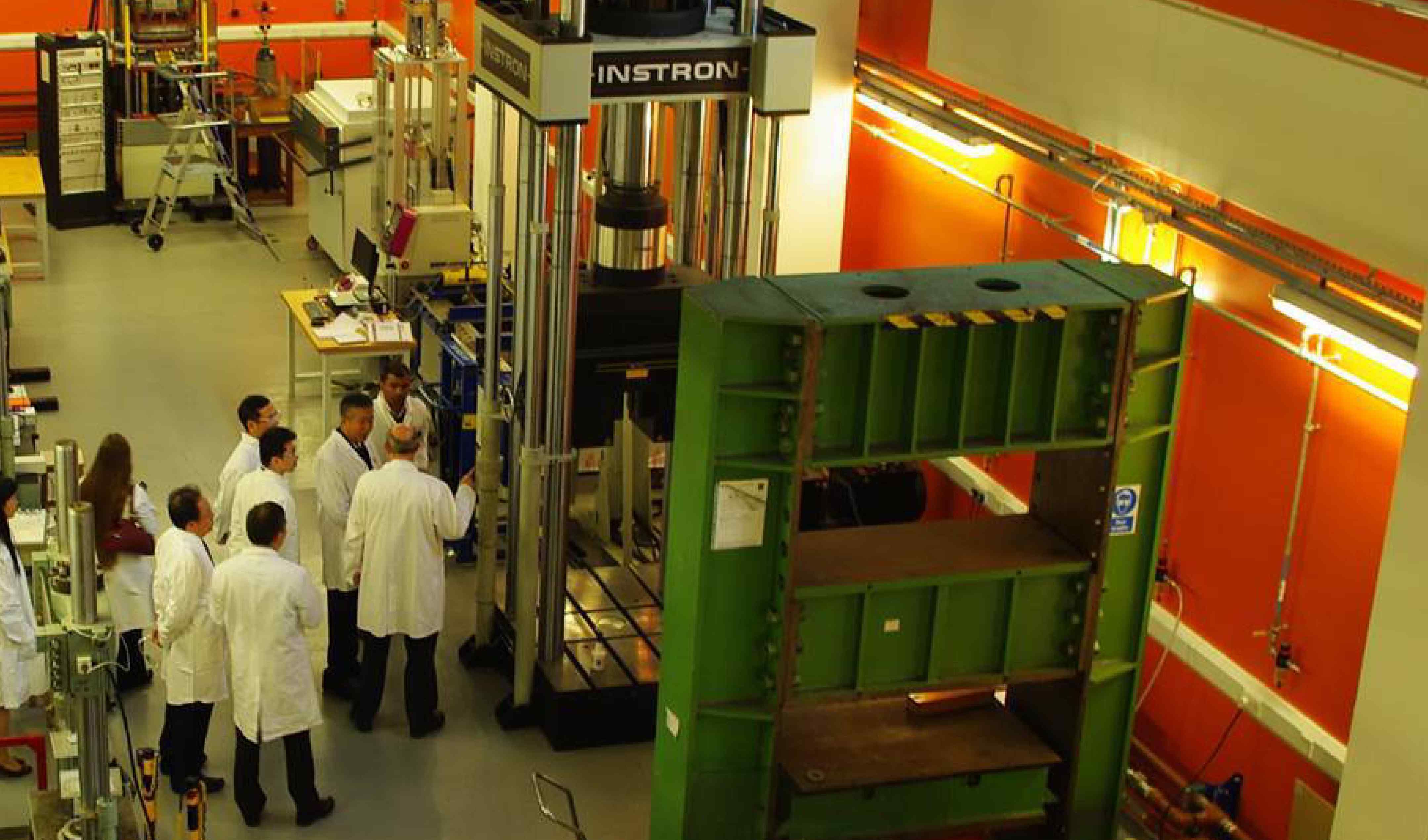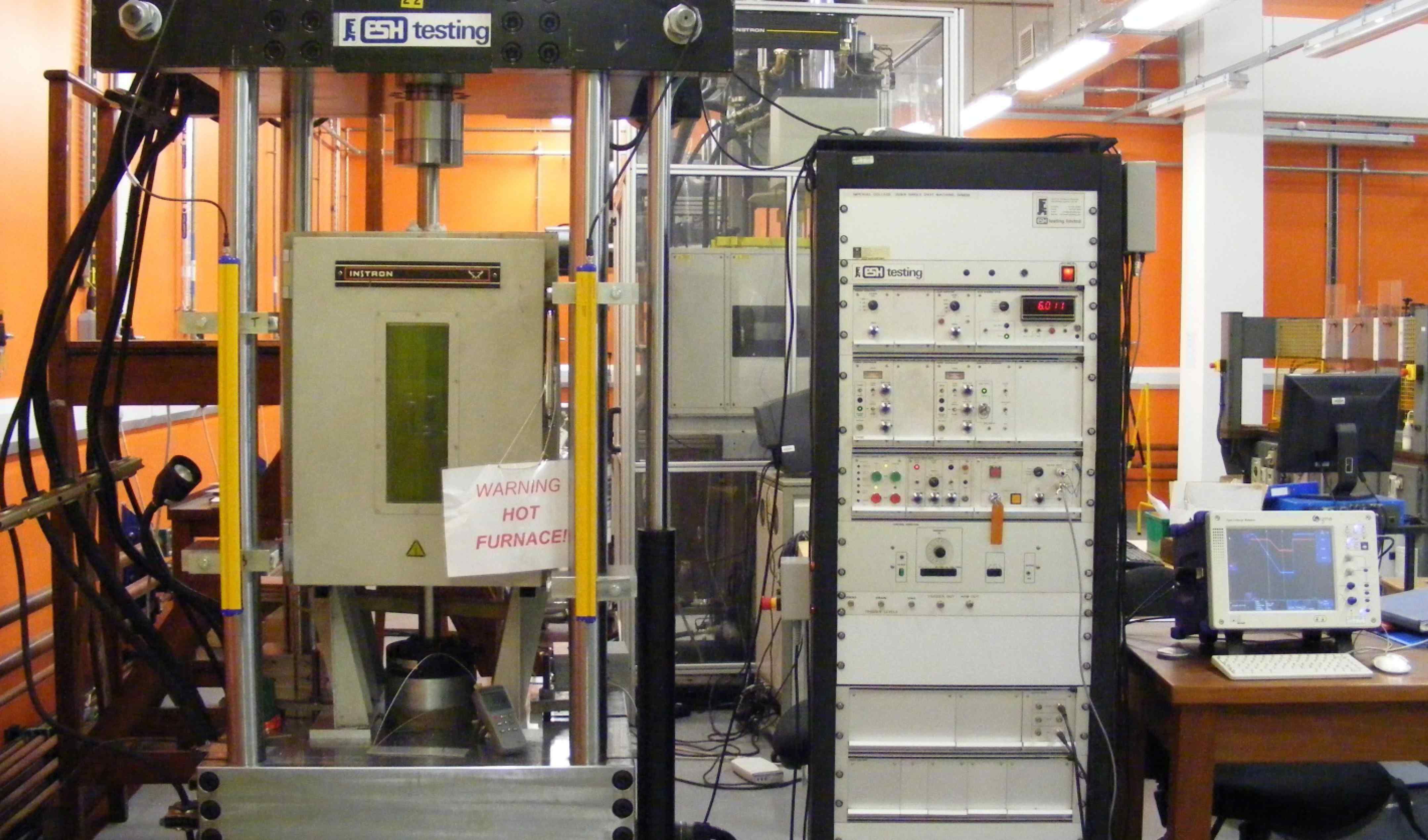Further resources
Thermomechanical Test Machines
Gleeble Material Simulator (3800 Series)
The Gleeble 3800 is a fully integrated digital closed loop thermal and mechanical testing system. Specimens can be heated at rates up to 10,000°C/s by resistance heating, or can be held at constant temperature. It is capable of exerting up to 20 tonnes of static force in compression or 10 tonnes in tension, with applied displacement rates up to 2 m/s. Feedback consists of LVDT transducers, load cells or non-contact laser extensometry.
Optical Strain Mapping
The optical techniques available within the Centre include Digital Image Correlation (including Speckle and Grid Patterning), Electronic Speckle Pattern Interferometry and Moiré Interferometry. Digital Image Correlation provides 3D deformation mapping.
Computational Systems
The new system MecToR is available for exclusive use, currently consisting of 40 AMD Opteron CPU cores with a total of 640 GBytes of memory for memory-intensive large parallel and batch serial jobs. Several other advanced computer clusters are available, such as the Imperial College High Performance Computer (HPC) systems, a Dell PC cluster with 1860 Intel Xeon CPU cores, and a total of 3.46 TBytes of memory and 30 TBytes of storage and an SGI Altix shared memory system with 62 Intel Itanium CPU cores and 128 GBytes of memory. Several smaller clusters for parallel computations are also available for group usage.
Microstructure Characterisation
A state-of-the-art atomic force microscope (AFM) and high resolution scanning electron microscope (SEM) are available for materials microstructure measurement. Other equipment is readily available through close collaboration with the Department of Materials, e.g. transmission electron microscope (TEM), focused ion beam (FIB) and nanoindenter. The group also has a range of optical microscopes and equipment for specimen preparation.
Contact details
For any questions regarding our work, please contact:


